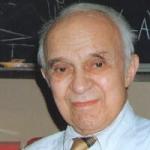Wassily Leontief

Wassily Leontief is a Russian - American economist who was born on August 5th, 1905 in Munich. A brilliant student, he enrolled in the newly renamed University of Leningrad at only 15 years old. Wassily Leontief devoted his studies to input-output analysis. When he left Russia in 1925 to begin the Ph.D. program at the University of Berlin, he had already shown how Leon Walras’s abstract equilibrium theory could be quantified. Having come to the conclusion that so-called partial analysis cannot provide a sufficiently broad basis for fundamental understanding of the structure and operation of economic systems, he set out in 1931 to formulate a general equilibrium theory capable of empirical implementation. He received a research grant for compilation of the first input-output tables of the American economy (for the years 1919 and 1929) in 1932. He began to make use of a large scale mechanical computing machine in 1935 and Mark I (the first large-scale electronic computer) in 1943. It was this work, and later refinements of it, that earned Leontief the Nobel Prize in 1973 for “the development of the input-output method and for its application to important economic problems".
Three of his doctoral students have also been awarded the prize (Paul Samuelson 1970, Robert Solow 1987, Vernon L. Smith 2002).
Throughout his life Leontief campaigned against “theoretical assumptions and nonobserved facts”. According to Leontief too many economists were reluctant to “get their hands dirty” by working with raw empirical facts. To that end Wassily Leontief did much to make quantitative data more accessible, and more indispensable, to the study of economics.
Professor Leontief passed away on Friday February 6th, 1999 in New York.
http://www.nobelprize.org/nobel_prizes/economics/laureates/1973/